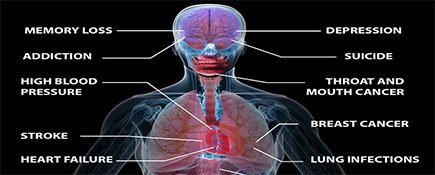General Medicine
Heart Attack Symptoms: What to Do in an Emergency
Written by Super User
Do you know how to recognize heart attack symptoms? A heart attack usually occurs when there is blockage in one of the heart's arteries. This is an emergency
that can cause death. It requires quick action.Do not ignore even minor heart attack symptoms. Immediate treatment lessens heart damage and saves lives. Recognizing Heart Attack Symptoms Heart attack symptoms vary from person to person. Not all heart attacks begin with the sudden, crushing chest pain that many people picture when they think of a heart attack. In fact, some heart attacks cause no symptoms at all. This is more common in people who have diabetes.. Heart attack symptoms may begin slowly, causing mild pain and discomfort. They can occur at rest or while you're active. Depending on your age, gender, and other medical conditions, symptoms may be more or less severe. Learn here how to recognize heart attack symptoms. Heart Attack Symptoms and Warning Signs Common heart attack symptoms and warning signs may include: C Chest discomfort that feels like pressure, fullness, or a squeezing pain in the center of your chest; it lasts for more than a few minutes, or goes away and comes back. Pain and discomfort that extend beyond your chest to other parts of your upper body, such as one or both arms, back, neck, stomach, teeth, and jaw Un explained shortness of breath, with or without chest discomfort Ot symptoms, such as cold sweats, nausea or vomiting, light - headedness, anxiety, indigestion, and unexplained fatigue. Chest pain and discomfort are the most common heart attack symptoms for both men and women. But, women are more likely than men to also experience other symptoms, too. These might include shortness of breath, nausea and vomiting, unexplained extreme fatigue, and neck, shoulder, upper back, or abdominal pain. What To Do When Heart Attack Symptoms Occur If you or someone you are with experiences chest discomfort or other heart attack symptoms, call 911 right away. Do not wait more than 5 minutes to make the call. While your first impulse may be to drive yourself or the heart attack victim to the hospital, it is better to call 911. Emergency medical services (EMS) personnel can begin treatment on the way to the hospital and are trained to revive a person if his heart stops. If you witness heart attack symptoms in someone and are unable to reach EMS, drive the person to the hospital. If you are experiencing heart attack symptoms, do not drive yourself to the hospital unless you have no other choice. Many people delay treatment because they doubt they really are having a heart attack. They don't want to bother or worry their friends and family. But it is always better to be safe than sorry. Courtesy: www.webmd.com



